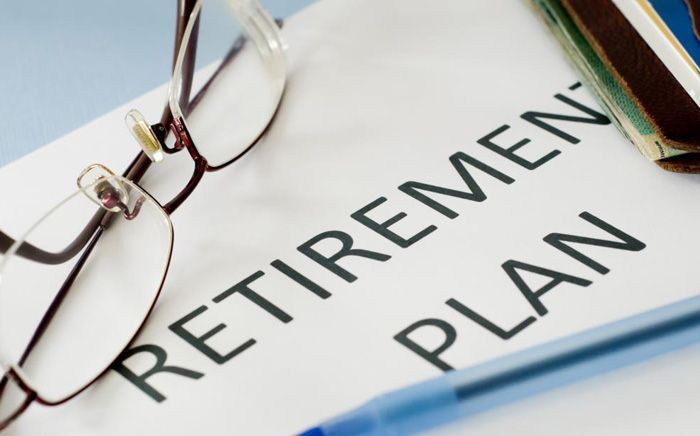Blog

A common question in the world of insurers is what’s the difference between life assurance vs insurance. Although the terms are used interchangeably in many parts of the world, technically speaking, they do not mean the same thing. Life assurance Definition: An agreement between a life assurance company and a policyholder; in return for a payment from the policyholder, the company commits to pay someone or something upon the death of the person whose life is being covered. Life Insurance Definition: An agreement between a life insurance company and a policyholder; in return for regular payments, the company commits – for a specific period of time – to provide insurance cover to the policyholder, paying a given sum in the event of their death. At the end of the term, the policy ends and has no residual value. The main difference between life assurance and life insurance is that life insurance covers you for a set term, whereas life assurance covers you for your whole life. An insurer may refer to life assurance, meaning the cover is indefinite, with no fixed expiry date, unlike a life insurance policy term. The word ‘assurance’ is used because you’re assured that a valid claim will be paid regardless of when you die, as long as you have paid all of your premiums. Life assurance is a vital tool for wealth management and tax planning. Life insurance is designed to pay out a lump sum if you die during the term of the policy. The decision whether to go for life insurance or life assurance will depend on your circumstances and what you are looking for from this type of cover. Learn more here . O’Sullivan Financial Solutions has agencies with all the leading Life and Pension companies in Ireland and is proud to offer friendly and understandable advice. For a no-obligation, impartial review, get in contact with us today at 01-2892077 Connect with us on LinkedIn to learn more about financial solutions: https://www.linkedin.com/company/o-sullivan-financial-solutions/

A common question in the world of insurers is what’s the difference between life assurance vs insurance. Although the terms are used interchangeably in many parts of the world, technically speaking, they do not mean the same thing. Life assurance Definition: An agreement between a life assurance company and a policyholder; in return for a payment from the policyholder, the company commits to pay someone or something upon the death of the person whose life is being covered. Life Insurance Definition: An agreement between a life insurance company and a policyholder; in return for regular payments, the company commits – for a specific period of time – to provide insurance cover to the policyholder, paying a given sum in the event of their death. At the end of the term, the policy ends and has no residual value. The main difference between life assurance and life insurance is that life insurance covers you for a set term, whereas life assurance covers you for your whole life. An insurer may refer to life assurance, meaning the cover is indefinite, with no fixed expiry date, unlike a life insurance policy term. The word ‘assurance’ is used because you’re assured that a valid claim will be paid regardless of when you die, as long as you have paid all of your premiums. Life assurance is a vital tool for wealth management and tax planning. Life insurance is designed to pay out a lump sum if you die during the term of the policy. The decision whether to go for life insurance or life assurance will depend on your circumstances and what you are looking for from this type of cover. Learn more here . O’Sullivan Financial Solutions has agencies with all the leading Life and Pension companies in Ireland and is proud to offer friendly and understandable advice. For a no-obligation, impartial review, get in contact with us today at 01-2892077 Connect with us on LinkedIn to learn more about financial solutions: https://www.linkedin.com/company/o-sullivan-financial-solutions/

Many people nowadays are looking for ways to invest money. Leaving it in the bank is guaranteeing a loss as interest rates are virtually nil. Over time inflation will eat into the real value of your savings. With Investments Ireland we will look at some key issues and give you some food for thought. So what are investments? How risky are they? How can I make a decent return? Even thinking of investing can be scary so this week we are going to share some simple principles based on over 30 years of experience dealing with real people, just like you. Investing Ireland Key Point One: Yes, investments can go down. Let’s be blunt! Investments in Ireland can go down (as well as up) and most are NOT Guaranteed. Once you leave the safety of a bank deposit you enter a world where things go up or down, this is the nature of investments. We can all see the fluctuations in house prices and with investments the same is almost always true. If you can’t accept this notion you should not invest. In summary: Investments have risk, it’s a fact. Investments Ireland Key Point Two: No risk, little growth. Ok, in key point one we admit that there is risk with most investments in Ireland, so why invest? The truth is that without risk you have very little chance of making a reasonable return. Long term investments in bank deposits underperform compared to stock market returns or even property prices. Leaving your money in the bank guarantees a loss if you consider inflation. In summary: You need to take some risk to achieve growth. So key points one and two result in a conundrum: Investments mean risk, but you need risk to make money. How do you manage that risk? On to point three….. Investments Ireland Key Point Three: Diversification is vital! Yes, old Granny said it years ago; “Don’t put all your eggs in one basket”, and Gran, you were right! (And about lots of other stuff too!) Ireland inc. nearly went bust when we went on a property buying bender, remember? “Bank shares are as safe as houses!” Did you ever hear that one? And we all know people who’s financial houses fell in on their heads because of that little ditty. Mixing my metaphors, with shares and houses, sorry! If you want to invest and reduce risk you need to spread your investment, or let someone else spread it for you. Most investment companies have “Multi-Asset Portfolios” which in English means they spread the money around. There is still risk, of course, but spreading your investment greatly reduces your exposure. In summary: You need to invest in a wide range of things (assets) . Property, Shares, Bonds, Cash, Commodities etc. Investments… Key Point Four: Time is important in the long run… Here is a really simple point; The shorter the timeframe the greater the risk. Or let’s put that another way, if you have a short timeframe you should not take much risk. In the short term investments will fluctuate greatly in value, sometimes alarmingly. Over the long term these peaks and troughs are less noticeable. So, for any investment containing assets like shares we recommend a minimum of five years, or preferably even longer. In summary: Investment is a marathon, not a sprint. Give yourself, and your nest egg, time. Key Point Five (& Six!): Keep an emergency fund! Because there is an element of risk with all investment, you need to ride out the short term fluctuations. (Point 5) If (When) markets fall, you need to stay in. Those who panic or who have to cash in are the big losers. So keep an emergency fund to allow you to leave your investment recover from the latest blip. (Point 6) In summary: Don’t invest every penny you have ; save some money for that rainy day, or in case there are bumps in the road. What do I do next? Talk to your local Financial Broker. He or she can help you to find an investment that suits you and your attitude to risk. If you don’t have one feel free to email: http://Donal O’Sullivan Or just call Donal on 087 2617495… For more information visit our knowledge base and view a short video about how funds work: https://osullivanfinancial.ie/knowledge-base/ # Remember: Investments can go down as well as up and, in general, are not guaranteed McCann Financial Consultants Ltd t/a O’Sullivan Financial Solutions is regulated by the Central Bank of Ireland

So how do you go about getting good financial advice? Who do you talk to? How do you know they are looking after your best interest? What should you be looking for in the first place? Let’s look at some key points. Financial Advice Is all About You Financial advice should focus on you, the client, and not on financial products. OK, the products are there to help you alright, but they are not the reason for a financial review, YOU ARE. A Financial Review should start with the Advisor/Consultant/”Expert” finding out all about you. If they are not asking you loads of questions they cannot understand you or your needs. Key Point One: Make sure the initial discussion centres on you and not on fancy financial products. Financial Advice Ain’t Rocket Science You should be able to understand financial advice. Financial products are not supposed to confuse you, they are meant to help. If you find your self lost in a sea of jargon you need to go somewhere else. A particular nuisance is the use of acronines (abbreviations) which sometimes people are afraid to ask about. Plain English is very important if you don’t want to drown in waffle. Key Point Two: Insist on simple explanations and if they are not forthcoming, exit stage left! Solutions are the name of the game. Good financial advice should give you solutions to your issues and problems. If you need to invest without risk, this needs to be addressed for you. If your top priority is to buy a new home, this should be central to discussions. Sometimes advice strays off on path to one you are not even going on. If the financial advisor knows all about you (key point one) he/she should be helping you with the things that matter most to you. Key Point Three: Make sure your most important issues are addressed first. Financial Advice Is Not a One Day Event Our lives change and so do our financial needs. Financial advice needs to cater for this. Products need to be adaptable. Advice itself needs to adapt. Most successful financial advisors will have clients for years or even decades. This also means that you need to be comfortable dealing with an advisor for the long term. Key Point Four: Look for an advisor who has (or at least aspires to having) long term client relationships. Summary A good financial advisor will get to know you, will care about achieving good outcomes for you and will become, over time, a trusted advisor. Make sure you pick one that you feel comfortable with, someone who you feel you could deal with over the long term. Research has shown that clients with financial advisors achieve better out outcomes than those who don’t, see our article in link below.

Let’s start with a few simple questions: Is it worth it to talk to a financial advisor? What would a financial advisor do for me? Can I be certain that I get advice that makes sense for me? Some simple statistics seem to answer these questions categorically: (See below for data sources)*** Clients who engaged with a Financial Advisor over a 15 year period had net worth 4 times greater than those who did not! 80% of investors say their financial advisor helped them to save . Working with a financial advisor encouraged them to save and invest. 76% of investors report that having a Financial Advisor gave them a positive sense of well-being . So let’s ask the question again: Is It worth it to talk to a Financial Advisor? Answer: Clients who engage with a Financial Advisor are wealthier and more disciplined with their money. Result; they feel better about their lives! So, what can a Financial Advisor actually do for me? A Financial Advisor can offer a broad range of services to benefit clients: A wide variety of investment solutions to match your financial goals. Help you to develop a financial plan to suit your needs, a plan that can evolve as your life changes. Assist you in understanding financial products and their role in your financial plan. Making sure that you and your loved ones are protected in the event of illness or death. Summary: Is it worth it to talk to a financial advisor? A financial advisor (aka Financial Broker): Will work with you to help you achieve financial goals. Has a broad range of knowledge and experience in helping people just like you. Puts you at the centre of his or her advice. At the end of the day it’s all about you and your financial goals. ***Data Sources: The Gamma Factor and the value of Financial Advice, Claude Montmarquette, Natalie Viennot-Briot, 2016, Canadian Investors’ Perceptions of Mutual Funds and the Mutual Fund Industry, Pollara 2019. : BlackRock Global Investor Pulse, 2019 McCann Financial Consultants Ltd T/A O’Sullivan Financial Solutions is regulated by the Central Bank of Ireland

This week in Life Insurance in Ireland 2 we delve into some extras and hot tips! Ok, so, Life Insurance in Ireland 2 doesn’t sound like a very interesting topic, let’s be honest. But it is an important issue that can be vital for many families. In this issue we will point out some extra benefits and some ways to potentially save money. PS: If you missed our recent article covering the basics of Life Insurance please click here https://osullivanfinancial.ie/life-insurance-in-ireland/ Life Insurance Hot Tip 1: Get Tax Relief on Life Insurance: If you are not a member of an occupation pension scheme you could take out Life Insurance and claim tax relief on it! If you pay 40% tax this is a 40% saving on the cost. This also applies to the self-employed and company directors. There are limits and some tax regulations to adhere to, but a potential saving of 40% is worth checking out. Personal Pension and Executive Term Assurance could be an efficient way of protecting your family. Your local Financial Advisor can explain all! Key Point: No one wants to pay too much tax or miss out on reliefs available. Could you get tax relief on Life Insurance? Life Insurance Hot Tip 2: Get some serious illness cover! Do you know anyone about your own age who has had a serious illness? (Cancer/Heart Attack/Stroke etc.) Having such an illness is distressing enough, but what about the cost? Time off work? Medical Bills? Other unexpected expenses? It has been estimated that the average cost of getting a serious illness is €60,000. Cover is relatively cheap and having it would take pressure off you at a time you certainly wouldn’t want it! Serious Illness Cover (AKA Specified Illness Cover) can be taken out in its own right or in conjunction with Life Insurance. (Terms and Conditions will apply) On average 1 in 3 people will get a serious illness during their working life. Talk to your local Financial Advisor today. Key Point: The younger you are the cheaper the price! Start when you are young, fit and healthy. Life Insurance Hot Tip 3: Get cover that lasts!!! We all know that people are living longer (and healthier) lives. You can get Life Insurance with a Guaranteed (fixed) monthly cost to age 85 and beyond. If looking at this area why not look at the long term and take out cover that really lasts? In the end it’s about protecting your loved ones. Once again your friendly financial advisor can show you how to plan for the future (however distant!) Key Point: Taking out cover late in life can be difficult as many of us will have some sort of medical condition, get in early and go for the long game! Visit our Linked In page for more info and updates: https://www.linkedin.com/company/76353413/admin/ McCann Financial Consultants t/a O’Sullivan Financial Solutions is regulated by the Central Bank of Ireland

Life Insurance in Ireland: De-mystifying an important topic. What is Life Insurance? Why should I have it? When looking at Life Insurance in Ireland lets start with a very simple question; what is Life Insurance? Life Insurance is an insurance Policy that pays out a lump sum (or income) when you die. “But why does anyone need a lump sum if they die?” I hear you ask….and…. The answer is actually quite simple; we need life insurance because generally when we die our income stops. What happens to those who rely on our income for all the basics of life? (Food, Heating, Education Costs, etc, etc) Our Spouse/Partner Our Children Others we are caring for (aging parent perhaps?) Conclusion: If you have family or others who would be financially affected if you died, you might want to consider getting some Life Insurance. Key Point: Remember your most important asset is your ability to earn income. How much Life Insurance do I need? This will depend on a number of factors, such as: Your Income. Size of family. Age of children. Your budget. Key Point: We recommend you speak to a Financial Advisor to help you determine the right level of cover for you and your family. Types of Policies on offer (without the jargon!) There are many types of policies on offer. Here are the main ones that people tend to take out. Term Insurance: A Term Life Insurance policy will pay out a lump sum if you die during a specified term, for example 20 years. The lump sum stays at the same level throughout the term, but you could add an indexation clause to increase it over the term. The monthly cost of the policy is also fixed over the term, unless you add indexation. Mortgage Protection: A Mortgage Protection policy is A LIFE INSURANCE POLICY, many people are confused by the term “Mortgage Protection”. A Mortgage Protection also pays out a Lump Sum if you die during a specified term, but this lump sum decreases each year. The policy usually starts when you take out a mortgage and the lump sum equals the amount you borrow. The annual decrease in Lump Sum is calculated to reflect the decreasing mortgage as you pay it back. In other words there should always be just enough to clear the mortgage if you die. The monthly cost of the policy is fixed over the term. Whole of Life Cover: This is a Life Insurance policy which will pay out a lump sum on death, regardless of when you die. The lump sum can remain level or increase with indexation as above. The monthly cost is fixed for the term. In practice few people take out this type of policy due to cost; they can be expensive. Key Point: Discuss with a Financial Advisor which type of policy is suitable for you. Is Life Insurance Expensive? In general Life Assurance is not expensive compared to many other items. (A 40 year old could get €250,000 Life Cover for around €30 per month) Price will depend on amount of cover, your age, the term you need cover for and your medical history. Pre-existing medical conditions and lifestyle factors can affect the cost. Different Insurers offer different prices for Life Assurance. Key Point: Ask a Financial Advisor to help you find the best price around. Please visit us at Linkedin: https://www.linkedin.com/company/o-sullivan-financial-solutions To Calculate how much Life Assurance you might need please click this link: https://osullivanfinancial.ie/life-cover-calculator/ For more financial advice – contact Donal during office hours on 087-2617495

Today in Even More about Pensions in Ireland we look at investments and how they impact on you! You are investing in your future after all…. Part 3: Investment Options for Pensions in Ireland. Who invests my money? Where is my money actually invested? How risky is my fund? Let’s start with some basic points: Your pension contribution is either deducted from your salary by your employer or taken from your bank account each month. If either case the money deducted goes to a Product Provider (Pension Company) and is usually invested into a Pension Fund. Each month as your contributions are paid in you are actually buying a small slice of the fund. These slices are called units. The Pension Company employs Fund Managers and other professionals to invest the fund (and hence your units) in order to make them grow over the years. How well your units grow will have an impact on your final pension when you retire. The more units you purchase will also have a significant part to play in growing your units (fund). So your Pension Fund is like an account; you hold units in this account which will vary in value over the years. How does my money grow? If your money was not invested (you hid it under the bed) it would decrease in value over time due to inflation. This means the Pension Fund Manager needs to put your money/units somewhere to attempt to make it grow. There are a range of investment options, sometimes called assets, to invest in. The job of the Fund Manager is to achieve a blend of assets that grow. There is an element of risk with any investment and with any asset type. Where is my money actually invested? Your Money (Units) are invested in assets as selected by the Fund Manager. There are five asset types which form the bulk of most pension funds: Shares in Companies traded on stock markets (Also called Equities). Property . (Usually Commercial property, office buildings, shops etc.) Government or Corporate Bonds . (These are like loans given to governments/companies with fixed return) Commodities & Alternatives (Gold, Oil, Renewable energy etc) Cash (Money in a bank) How Risky is My Pension? Each of the above asset types has some element of risk: Shares can go up or down in value. If your fund only invested in shares it would be considered High Risk. Property Values can also go down as well as up. A Fund invested purely in property is also High in Risk. Bond Prices can vary too and returns can be low depending on market fluctuations. Commodities can vary in value although some items (gold for example) always have some value. Cash is considered low in risk but if interest rates are lower than inflation there is a risk cash could also lose value. Key Point 1. How risky your pension is depends on how much of each asset class is held in the fund and also on the management of these assets. If your Fund Manager invests well over the years you will see growth in your units. Key Point 2. Time is vital. Buying more and more Units over the years will help you to grow your fund. START TODAY!!!! Key Point 3. We are all different and have different attitudes to risk. Make sure you know risky your fund is. REMEMBER: Most pension funds are not guaranteed and can go up or down in value! Action Point: Ask your pension provider/financial advisor about your fund: How risky is it? How is it doing? Where is it invested? For more about pension visit our pension page https://osullivanfinancial.ie/pension-plans-2/ Or visit us at Linkedin https://www.linkedin.com/company/o-sullivan-financial-solutions/

Pensions in Ireland: Investing in Your Future Part 2/Pensions provided at work. In this edition of Pensions in Ireland we will try to unravel some of the mysteries of pension schemes provided by Irish Employers. Many people working in Ireland are members of some sort of a pension arrangement and many of these people find the schemes complicated, confusing or baffling. So More about Pensions in Ireland is our attempt at unravelling the mystery, or maybe just shining some light on the darkest corners! So let’s start with some basics: Pensions (even work based pensions) are a way of saving money. This is regardless of what type of scheme it is. Workplace pensions (sometimes called occupational schemes) have the advantage that your employer might add to your pot. You, the employee, can get tax relief on your savings (pension contribution) You can get a large portion in a tax free lump sum at the end. Your savings in the pension fund grow free of tax before retirement. When you retire from work your savings (pension fund) will help you to have a nice lifestyle. And, if you are the employer, you also get tax relief on contributions towards your employees fund(s). (Within certain limits) Types of Schemes: So here is where things can get tricky. But let’s just focus on the main schemes that exist today and their most important features: Group Pensions: Where everyone is a member of one scheme. For example O’Sullivan Tyres Employee Pension Scheme. Each member has an account within the scheme. There is a Trustee or Board of Trustee who oversee the scheme. Executive Pensions: Each member has an individual contract. Generally suits small businesses with sometimes only 1 or 2 employees. Trustee may be the employer or the pension provider. Group PRSAs Each member owns their own pension contract and there are no trustees. Investment and Risk Your savings (pension contributions) need to be invested somewhere over the years to grow and hopefully make your retirement more comfortable. With Group Pensions the Trustees may decide where your funds are invested and may also give you, the member, some choice in the matter. With smaller Executive Schemes or PRSAs the choice is often made at the individual level. Different Pension Funds have different levels of risk. You, as a member of a scheme, should be aware of how risky (or not) your fund is. Task for Today: Ask your Pension Provider (HR Manager) or whoever looks after your pension, how risky your fund is. Summary A pension scheme at work is a great benefit and provides many tax breaks. The most important thing however is the impact this scheme has on your future financial life. Ask your provider for an update of your benefits and speak to a financial advisor about your likely outcome. For more information on pensions: https://osullivanfinancial.ie/pension-plans-2 Or Visit us on Linked-In page: https://www.linkedin.com/company/76353413/admin/ McCann Financial Consultants Ltd t/a O’Sullivan Financial Solutions is regulated by the Central Bank of Ireland

Many people we meet have financial arrangements already in place. In an effort to assist with a review they usually bring the file (or envelope) with their documents. Without being rude this file (envelope) is usually stuffed full of papers/reports/quotations and all sorts of paraphernalia, most of which is pretty useless. So this poses the question, what documents should I keep and what should I destroy? Our short video might help. And, please remember,r this is only our opinion, but it is based on thirty years of digging through piles of papers! Donal February 2018

Here is a simple idea to help you to extract money from your business, using pension legislation. If you can prove it makes no sense I will donate €10 to Dublin’s Simon Community! I am presuming you are 45, male/female (doesn’t matter either way) and own a small limited company which you set up 5 years ago. You draw a salary of €70,000, so things are fairly good. And you have no existing pension arrangement, because you don’t believe in them! Here’s the plan 1. The idea is to fund for a tax free lump sum with NO RESIDUAL PENSION. So don’t worry about receiving small annual payments (annuity). 2. When you are 60 you can take 1.5 times your final salary as a lump sum, tax free. (Under current legislation!) 3. So, assuming no growth in salary, you can take €105,000 (€70,000 x 1.5) tax free at age 60, nice birthday gift to self. 4. To fund for this your company needs to put €7,000 a year into an approved pension fund. (7,000 x 15 years = 105,000) assuming NO GROWTH in the fund. As you are not concerned with growth there is no need to invest in risky funds! 5. Your company can claim corporation tax relief on this payment each year. A total saving of €13,125 if you pay 12.5% Corporation Tax 6. When you reach 60 mature the pension (no need to retire) and take €105,000 tax free. (If you had drawn this amount in salary each year you would pay tax, USC etc and be left with say €3,500?) Summary You net €105,00 as opposed to €57,000 approx if taken as salary Your company saves €13,000 in tax. End of Pension Fund, you have cleared it out! Now, that has to make sense? Talk to a Qualified Financial Adviser today. Donal O’Sullivan QFA October 2015

Here are some brief examples of the results we have been able to achieve on behalf of our clients: AP Met client in 2011. Client concerned about lack of growth of Investments/ARF plans Also worried about Risk McCann Financial…… Re-arranged portfolio and achieved substantial growth in funds Did not expose client to major risk. Client delighted with results. CC Met client in 2009 Had large amount of existing life and illness policies, accumulated over the years. Client unclear about benefits/cost/value for money. McCann Financial…. Reviewed policies, made changes, simplified things Client saved money, improved benefits Client now knows what he has and, more importantly, why. HR Met Client in 2010 Reviewed portfolio of business arrangements. McCann Financial…. Ensured business secure in the event of death of a partner. Reviewed Pension Plan which was not performing. Set up regular review process (twice yearly) Client clear about existing plans and future goals. EV Met client in 2015 Needed Mortgage Protection Cover in big hurry for loan. McCann Financial….. Arranged policy within two days of first contact. Client happily in new home. See Testimonial Page for other client comments. Donal 28/07/2015

Here is a brief summary of what we specialise in: Reviewing existing Life and Illness Policies that people may have accumulated over the years, seeing what still makes sense, what can be improved on and, in many cases, if clients can save money. Reviewing Investment and Pension Plans in terms of Fund Performance and Risk. Making sure that clients are fully aware of existing risks and opportunities for investment today. Ensuring that clients have a better understanding of their financial situation and put plans in place to achieve their financial goals. Helping businesses to ensure continuity in the event of death or illness. Giving clients full information and reviews on all their financial arrangements on a regular basis. Please see our Testimonial Page to see how these services worked out for our clients.

Take Care of (Your) Business Most small businesses today are fighting to survive in a difficult economic climate. In addition to this many rely on 1 or 2 key people to keep things running smoothly. This situation gives rise to a number of important questions: Could your business continue to operate efficiently if a key member of the team was absent due to death or long-term illness? If a partner (share holder) in your business died who would own the company? How would your company or business compensate the spouse and family of a deceased partner/share holder for his or her role in building up the business? A O’Sullivan Financial Solutions Business Review will help you to ensure that your business can survive most of the challenges that life throws up. Key Person Cover can protect you cash flow if that key person is absent. Share Purchase Cover can give you funds to maintain control and ownership. Co Directors Cover can also provide for the family of a deceased partner. Can you be certain that your business is properly protected? Call our office 01-2892077 or Donal on 087-2617495 for a Business Review today!

Money under the mattress? In the Ireland of today many people have accumulated large sums of cash in deposit accounts. This is fine for some if they need access to the funds and require security over growth. However for many others the prospect of leaving their hard earned money in deposit accounts which are paying very low interest rates is not ideal. So… Would You Like to consider some wide ranging investment options from some of Europe’s biggest investment companies? Would You Like to have an Investment Portfolio that caters for your current and future needs? Would You like to avail of the opportunity to invest into some really innovative products? Would You Like to Be sure that any investment is suitable given your circumstances and attitude to risk. Call Donal on 01-2892077 for a full review of your investment opportunities. Remember: Investments can go down as well as up in value, care should be taken in selecting an investment product that is suitable to your risk profile.

Looking after your Family We all need to protect our families in the event of death because bereavement brings not only emotional stress, it brings financial uncertainty and for many financial pressure. Life Assurance cover provides vital cash at the most difficult time imaginable. YET Many people do not know how much Life Assurance Cover they actually need. Others have policies they don’t understand. And some wonder are they paying too much for cover they do have in place. With a review of your protection needs from McCann Financial you can: Assess how much cover (if any) you require. Review Policies you have and see are they value for money. Be certain that you are protecting those who rely on you most.

If you were ill and unable to work Our most important asset is our ability to work, create income and to provide for our family and ourselves. But what would happen if you were unable to work due to accident or illness? How long would your employer continue to pay you? Are you self employed? How long would your business stay afloat? Could you pay your monthly mortgage? Could you afford the other necessities of life? Could you afford to take the time to recover properly and get yourself back on track? Income Protection covers you against being out of work due to any illness, accident or disability. It can give you an income after 8 weeks and the costs are tax deductible. It helps you, your family and perhaps your business to survive the financial strain of long term illness. Ensure that your income is properly protected by doing a O’Sullivan Financial Solutions review today!

Retiring and Having Fun Most of us will stop working one day; at least we will stop working at the same hectic pace as today. And what will we do when we are not working as much as we are now? Chances are we will spend money. At O’Sullivan Financial Solutions l we recognize that most people will survive when retired; a combination of state pension, lower expenses, less family commitments means that you will stay afloat, but will you be able to do the things you enjoy? Go On Holiday? Retain Membership of Your Golf Club? Continue Your Hectic Social Life? Retirement Planning can be approached in many ways, but O’Sullivan Financial Solutions like to put you at the centre. Yes, we do need to discuss those Pension Policies but your other arrangements are important too…so.. Let’s assess your retirement goals and aspirations. Let’s see how you are tracking for these goals. Let’s assess existing pension and other arrangements. Let’s plan an enjoyable retirement. 3 Small Points about Pension Plans!! They still make sense from a taxation point of view. Pensions can be invested in a wide range of assets, not just into volatile stock markets. They are not as confusing as you think, or shouldn’t be!!

Pensions in Ireland: Investing in Your Future. Part One of a Three Part Guide to Pension in Ireland in 2022 In this short guide to Pensions in Ireland we focus today on Personal Pensions or Personal Retirement Savings Accounts (PRSAs). These pensions are suitable for anyone in non-pensionable employment or for the self-employed. Below are some Personal Pension Basics: A Personal Pension or a PRSA is a savings vehicle. The savings you accumulate help you to have a good lifestyle when you stop working (or wind down a bit!) These savings can usually be accessed after 60. You get tax relief on your savings (pension contributions) as you pay them; within certain limits. Your savings grow free of tax before retirement (NO DIRT TAX IS DEDUCTED) You get a sizeable portion of your savings in a TAX FREE LUMP SUM at the end. You can choose where your savings are invested and how much risk to take as you build up your fund. Pensions in Ireland/Investment Choice: Your hard earned money needs to grow over the years and this is achieved by investing in a Pension Fund. These Funds are offered by the various Pension Providers and are managed by professionals whose job it is to get you a decent return over time. The fund managers try to get this growth by invested your money in a range of assets described below: Equities: These are shares traded on stock markets worldwide. Property: Many pension funds will have an element of property, usually commercial property. Bonds: Both Government and Corporate Bonds are used. A Bond is similar to a loan offered to a Government or a Corporation with a guaranteed return. Alternatives: Funds may also invest in Commodities (Coal, Gold, Oil etc.) and many now focus on renewable energy and green investments. Cash: Some of your fund may be held in cash with returns based on bank interest rates. Pensions in Ireland/Risk : The assets above have different levels of risk. Shares (Equities) and Property can make great returns but are more risky, especially in the short term Cash is low risk but offers low returns, particularly at the moment. The key is to blend these assets in a manner that suits you. Pension Funds invest in these assets in order to achieve growth and vary the blend (fund mix), which effects the level of risk. You should seek financial advice in order to choose a blend (Fund) that works for you. Pensions in Ireland/Summary A Personal Pension (PRSA) is a tax effective savings vehicle. A Personal Pension will help you to have a better lifestyle later on. Your funds need to be invested to grow. You decide on how much risk to take (In consultation) with your Financial Advisor. Starting early is a BIG ADVANTAGE! For information on our Pension Review service click here Simple Facts Pensions Or visit our Facebook Page https://www.facebook.com/Donalotte/?ref=pages_you_manage McCann Financial Consultants Ltd t/a O’Sullivan Financial Solutions is regulated by the Central Bank of Ireland

